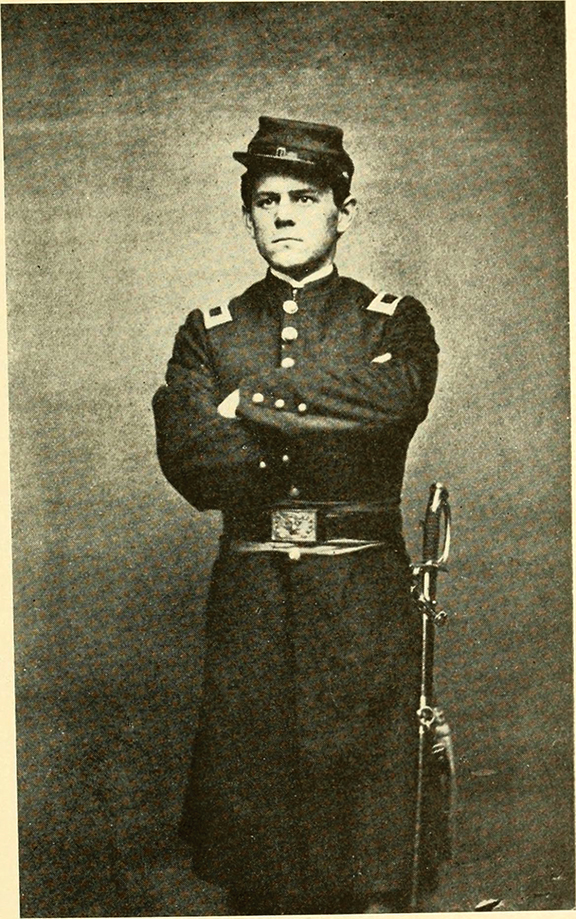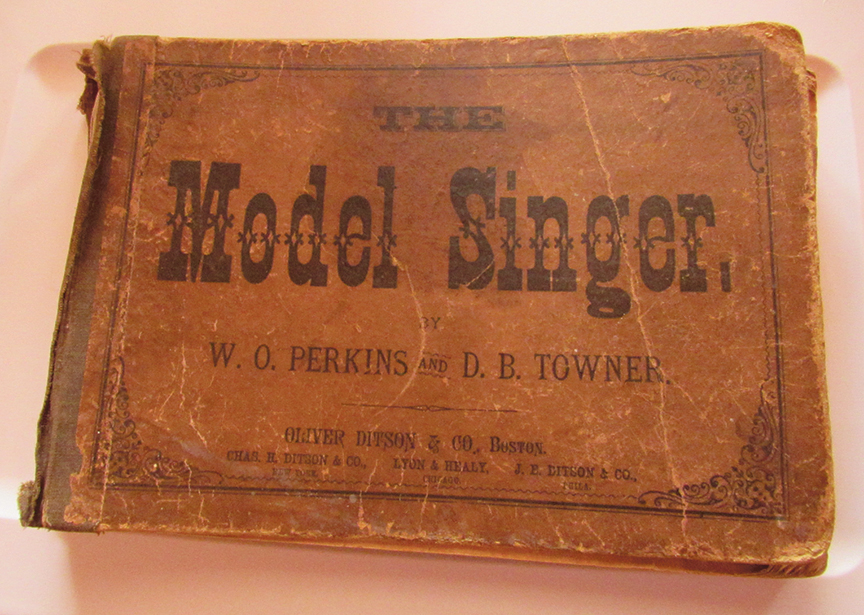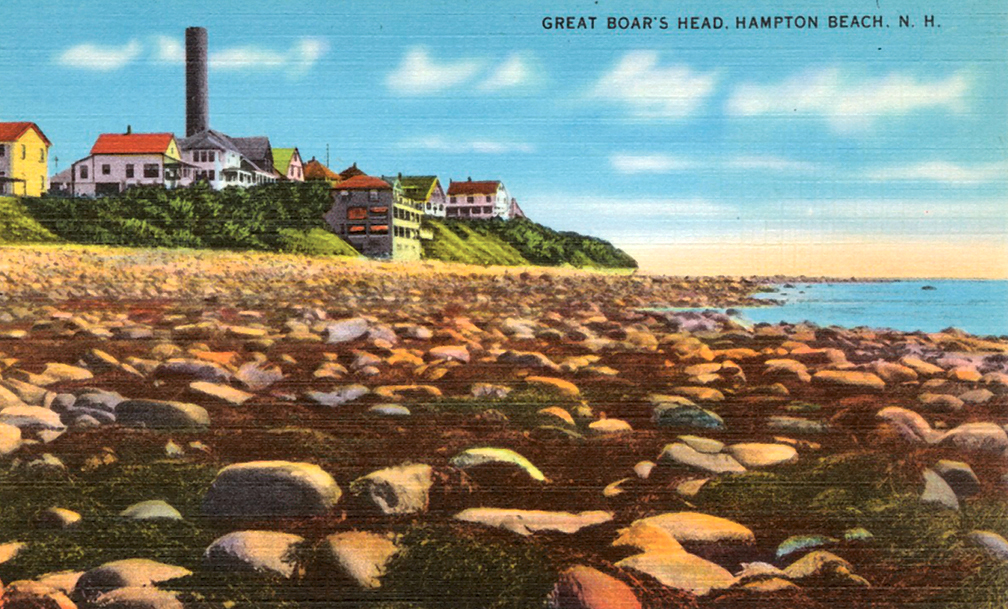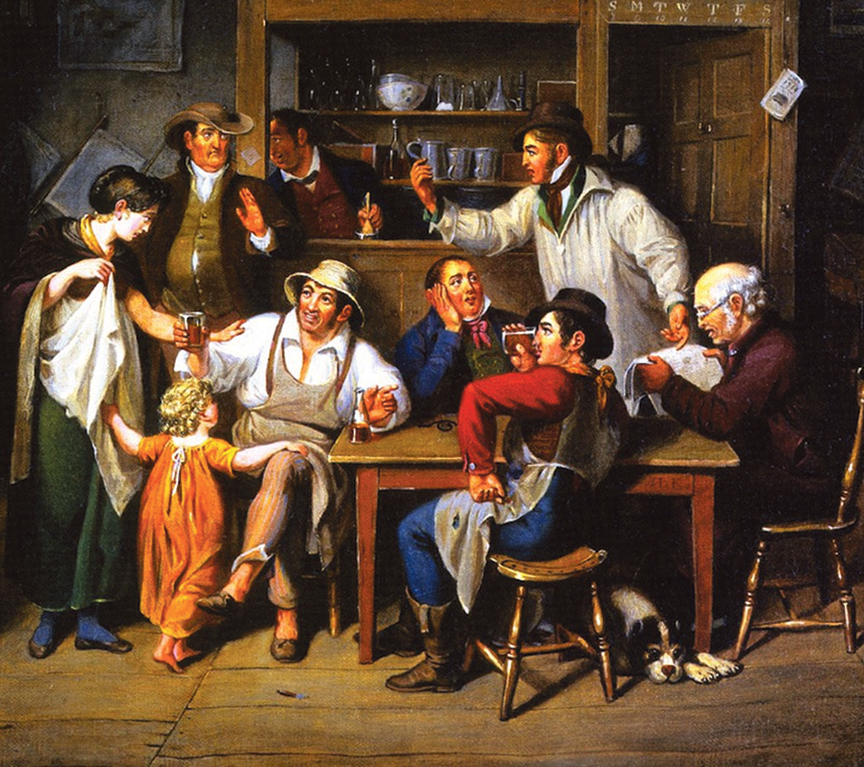Memories To Ponder – Lest We Forget Sacrifices Of The Civil War

PHOTO: Corporal Elbridge J. Copp of Nashua, NH., the youngest commissioned officer of the Civil War to be promoted from the ranks.


by Robert Hanaford Smith, Sr.
Weirs Times Contributing Writer
Though politicians hoped to find a solution to the divide between the Northern and Southern States in the middle of the 19th century, the war seemed certain to many when Fort Sumter was fired upon.
Elbridge Copp was but 16 years old and working in his family’s book store in Nashua, New Hampshire when the news flashed over the telegraph of the fall of the Fort. Copp remembered his uncle saying “We are going to have a terrible war,” and he also recalled the excitement that made it difficult for him to continue to work. He wrote: “I inwardly rejoiced, and was at once filled with a determination to have a part in it. The most intense excitement stirred the whole country.
As I read Elbridge Copp’s words of those days many years ago that “nothing but the war was thought of or talked about..,” I thought of the fact that today “nothing much but the COVID-19 virus seems to be thought of or talked about.”
In that April of 1861 the young Mr. Copp who was determined to be in the war probably had no clue as to the number of people who would die or be wounded in that war as today, in the year 2020 we only have projections as to the total that will die from the COVID-19 virus. The 16-year old from Nashua, indicated that only those who were in the midst of it can have any conception of the condition of affairs at that time. He observed men who had served in the 1st New Hampshire Volunteer Infantry Regiment returning in August after their three months enlistment period was over and described their marching through the streets of the city as a great event. Copp persuaded his father to let him enlist in the 3rd New Hampshire Regiment and he went on to become perhaps the youngest man in the State to become a commissioned officer, that happening when he was barely 18 years old. He eventually reached the rank of Colonel.
Many have given their lives in the service of their country from the Revolutionary War to the present day, but here I will just mention a few from central New Hampshire who served in the 12th NH Regiment during the Civil War.
Adna M. Hall was born in Bristol and served in Company D. This grandson of a Revolutionary War soldier fought at Fredericksburg and Chancellorsville and was shot early in the fighting at Gettysburg and died from his wounds.

Another casualty at Gettysburg was Edwin E. Brown of Bridgewater who was described in the history of the 12th as “…a sincere Christian, a brave and patriotic soldier and an honest man.”
From Ashland (then Holderness), Sergeant Samuel T. Cheney was called “one of the heroic patriots of the regiment” and was one of four brothers who served in the Union army. Cheney died on the battlefield at Cold Harbor.
Also dying from wounds received at Cold Harbor was John W. Dow of New Hampton who received his widowed mother’s permission to enlist at the beginning of the war and of whom it was written, “His record as a soldier stands among the best.”
Many who died during the War lived for some time after being injured, but eventually lost their lives as a result of those injuries. One of those was Corporal Henry J. Smith who was born and buried in Laconia (then Meredith).
Hiram Elliot who was born in Loudon in 1813 had served as an officer in the old State Militia, as had his father. This father of four who was about 50 years of age was killed at Chancellorsville.

After the war Decoration Day was started to decorate the graves of fallen soldiers with flowers. Remembering those who lost their lives during the Civil War was extended to honor those of all wars on a Memorial Day, and today we use the day to remember all of our dead, while having special ceremonies for those who have died for their country and placing flags at their graves. During wars, including the Civil War, I have noticed that the American flag is afforded special attention by our servicemen and if a designated flag-bearer falls another soldier is quick to retrieve the banner and lift it high during the battle. The Stars and Stripes represent America and the freedom our country stands for and which so many have fought and died for. The country’s flag which has become so meaningful to loyal Americans has its own special day in June.
The United States now has a large standing Army, Navy, Air Force, etc. and New Hampshire has a National Guard, a modern day, though better trained and equipped, equivalent to the militia of old. Those New Hampshire citizens who volunteered their service in the regiments of the Civil War were not highly trained or prepared for the battles they would soon be involved in, and they were hastily formed and organized.
There are many stories of bravery associated with the war, as there are with the current health crisis in 2020, but it is true of the 1860’s as it is in 2020, that there were some who weren’t so brave or upright in conduct.
Though the regular soldiers of the 1st NH Regiment only received their $11 monthly pay, some members of later regiments were paid bounties to enlist and/or received payments from their towns to support dependents while they were at war. It was legal for those who could afford it to pay for a substitute to take their place in the Army. Some of those substitutes received payments for enlisting and soon afterwards deserted their comrades. Some of the deserters were foreign opportunists who returned to their native country; others from other countries served valiantly under the American flag.
The author of the History of the Twelfth Regiment ,A.W. Bartlett, one of its soldiers, wrote “ No one who has never been there himself can have any adequate idea how exhaustive to the vital forces is the struggle for victory between contending forces on the field of battle.” Concerning the conclusion of the battle at Chancellorsville he wrote that a cloud-burst of rain “…was a merciful God-send to the wounded, many of whom were still lying on the field unprotected, except by the shade of the trees. It allayed the inflammation of their wounds, checked the fever that was burning them up, and gave them a fresh and bountiful supply of ozone from nature’s own laboratory.” He indicated that the rain, after every battle relieved the suffering of thousands and saved the lives of hundreds.
Bartlett wrote in his diary on May 8, 1863: “Rain again in the night, and another dull and cloudy day. It seems as if the heavens weep by night and put on the veil of mourning by day in sorrow for the fallen heroes, who but yesterday were here, but today sleep beneath the blood-soaked sod where they fell.”
The rain always ends as do wars, and fallen heroes allow for the sun to shine again, then and in 2020.



